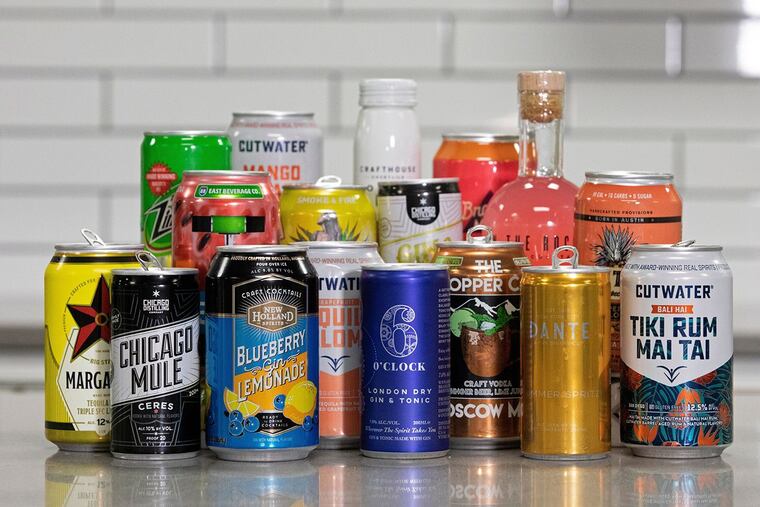Permit applications being accepted fo to-go, ready-to-drink cocktail
“This is what real freedom looks like,” said Pennsylvania Gov. Josh Shapiro.

Pennsylvania, known for some of the most restrictive booze laws in the country, is on the brink of a new dawn.
No, you can’t buy take-home liquor, wine, and beer in the same place yet — progress is measured in centuries here.
Starting Tuesday, however, retail liquor licensees and distributors, as well as importing distributors of malt and brews, have been able to apply for ready-to-drink cocktail permits, which let consumers take canned booze to go.
“This is what real freedom looks like, and we did it in a way that protects taxpayers and supports our state workers,” said Gov. Josh Shapiro, who signed the bipartisan legislation this summer.
» READ MORE: Pennsylvania’s weird liquor laws, explained
To-go cocktails became a prominent fixture across the state in the early months of the pandemic, when then-Gov. Tom Wolf’s COVID-19 emergency order allowed certain businesses to sell them in an effort to help struggling restaurants and bars. That ended when voters approved a constitutional amendment in June 2021 that allowed the legislature to lift the emergency order.
» READ MORE: The sudden end of to-go cocktails and outdoor-dining drinks are salt in the restaurant industry’s wound
In practical terms, this new legislation means places with retail liquor licensees eligible for wine expanded permits — think restaurants, hotels, gas stations, convenience stores, and supermarkets— can be approved for canned cocktail sales if they meet the requirements.
But customers should not expect to walk out with cases of tequila margaritas, G&Ts, and spiked iced teas galore in a single sale. There are also plenty of rules for establishments to follow when applying and if granted a permit.
The initial application fee is $2,500 and the renewal fee is 2% of what an establishment spent on cocktails purchased for to-go sales. A permit holder can sell drinks up to 16 ounces to-go that range in 0.5% to 12.5% alcohol beverage by volume, so long as they remain in their original containers.
Establishments can’t sell so-called private-label products or sell the drinks past 11 p.m. Monday through Saturday. Restaurants and hotels permitted to sell booze on Sundays and have a to-go cocktail permit can make sales until 11 p.m., while distributor and importing distributor licensees with a Sunday sales permit can make transactions until 9 p.m.
Establishments applying for this new permit also have to be certified in a program on responsible alcohol management.
The law allows a business with a ready-to-drink cocktail permit and wine expanded permit to sell 192 ounces of to-go cocktails per transaction, which would be a dozen 16-ounce cans.
The Pennsylvania Liquor Control Board is aiming to begin approving permits to early-bird applicants as soon as Sept. 16, which is when the law goes into effect. The board expects to receive hundreds to thousands of applications between now and then on its online platform.